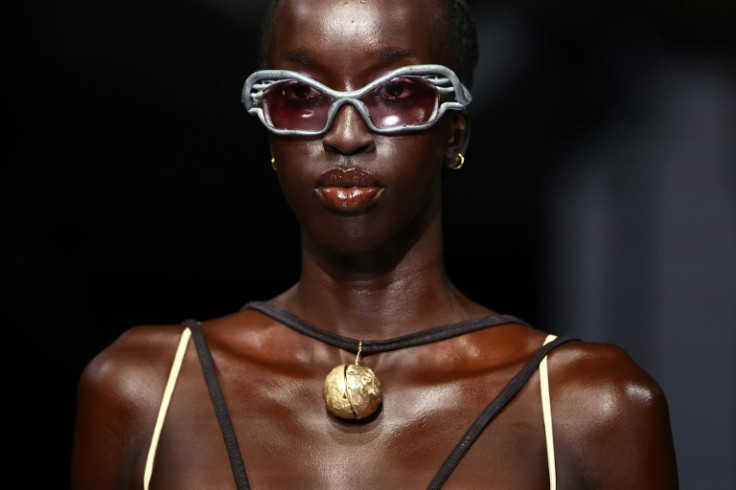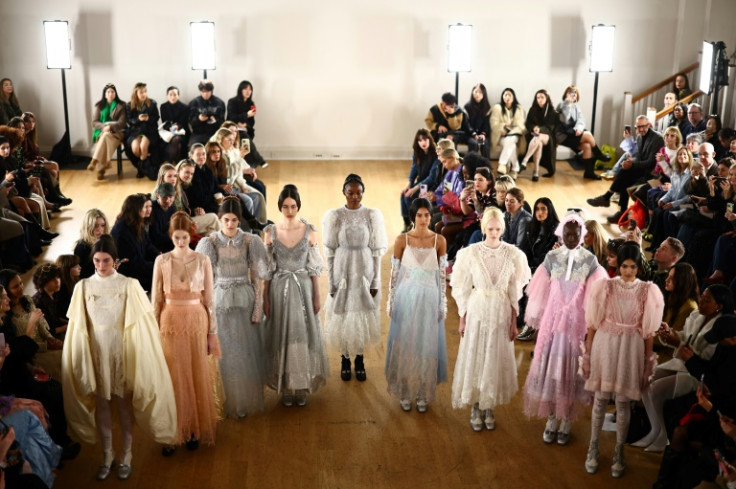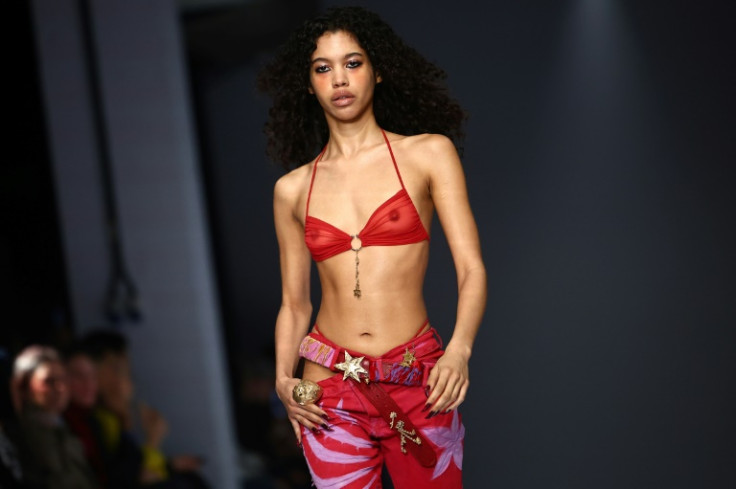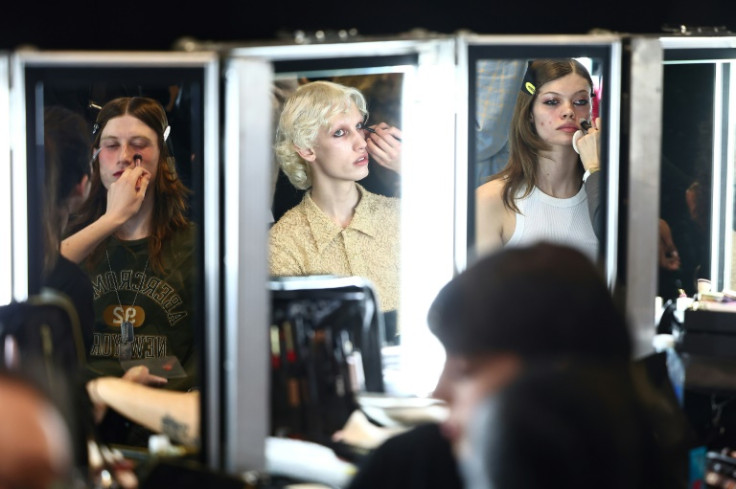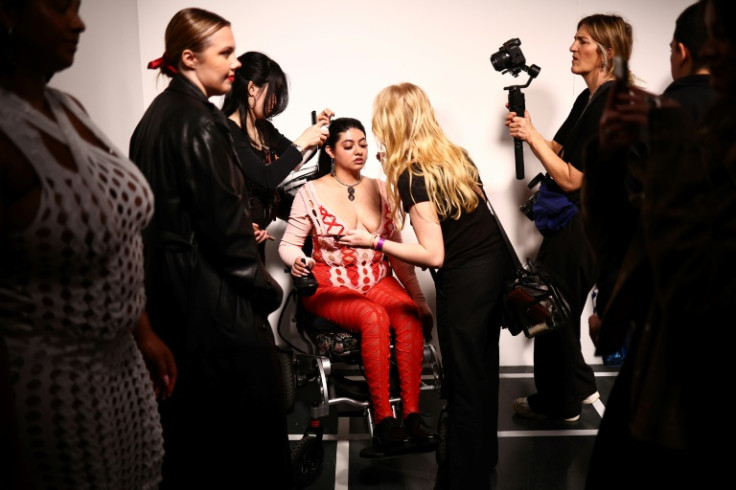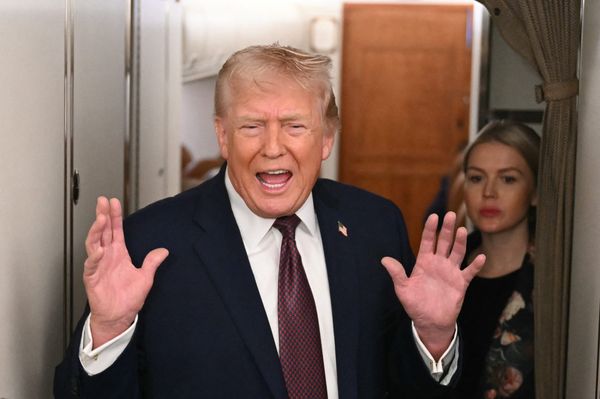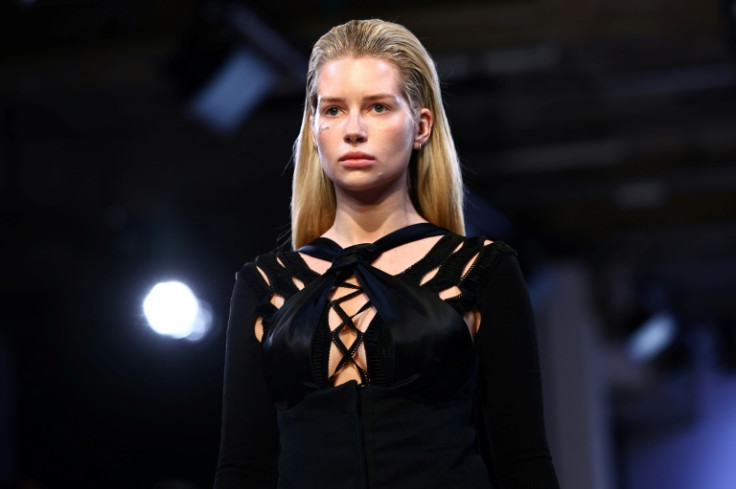
From tweed to the iconic low-rise jeans of the early 2000s, London Fashion Week unveiled a spectrum of styles on Friday, kicking off its 40th season which has been dimmed by the UK's gloomy economy.
Some 60 designers, ranging from rising talents to renowned brands like Burberry, will show their new designs over five days, hoping to draw the interest of buyers and fashion influencers.
Irish-American designer Paul Costelloe's show, titled "Once upon a Time" -- a reference to the iconic 1984 film "Once Upon a Time in America" -- showcased wide-belted coats in ecru, anthracite and checkered tweed.
Costelloe, 78, who is bedridden with a virus, was absent from the event.
In another early show, Ukrainian Masha Popova, a "Gen Z" favourite, presented a collection inspired by early 2000s so-called Y2K era.
Performed against a backdrop of techno music and in front of a crowd of influencers, it featured models in low-waisted pants, washed out denim -- and heels topped with long gaiters.
Elsewhere, Turkish designer Bora Aksu delivered a gloomier mood, aimed at finding and celebrating "the purest beauty amidst the most vivid of horrors".
Slender models wearing bodices paired with wide sleeves, lace gowns, flowing skirts, blouses and masculine jackets paraded to slow-beating music, with cream, grey, black and dark blue the predominant colours.
The designer, who was inspired by the work of sculptor Eva Hesse who fled Nazi-Germany as a child in 1938, used tones of pink and blush to retain a light, feminine energy, while making use of old stock and rejected rolls for his garments.
British designer Edward Crutchley presented the masculine figure of the cowboy, adorned with a hat and wide coats, subverted by the addition of latex pieces, maxi shoulders, delicate medieval-inspired prints, and long wavy hair on both men and women.
Despite the audience's excitement, the showcase comes at a tumultuous time for Britain's fashion industry, amid post-Brexit trade barriers and the country's inflation-fuelled cost-of-living crisis.
The situation has prompted some nascent designers to question the viability of investing in British fashion events.
Rising star Dilara Findikoglu made headlines last September after she cancelled her show days before the event for financial reasons.
The industry, which employs close to 900,000 people in the UK and contributes GBP21 billion ($26 billion) to the British economy, is facing "incredibly challenging times," LFW's director Caroline Rush told AFP.
But what can be garnered from 40 years, she said, "is that in the most economically challenging times, you see the most incredible creativity".
"There's almost this visceral reaction to what's happening at home," Rush added.
"I'm hoping that the creativity that we see over the next few days will be incredibly uplifting, that it will talk about the role of culture and creativity in society."
The first edition of British Fashion Week was held in 1984 in a tent set up in the parking lot of the former Commonwealth Institute in West London.
Initially overlooked, the British capital earned its rebellious reputation thanks to legends like Vivienne Westwood and John Galliano, who put the city on the fashion map, and then with the "Cool Britannia" era in the 1990s, a cultural euphoria period when Stella McCartney or Matthew Williamson dressed supermodels Kate Moss and Naomi Campbell.
Since then, London has lost some of its allure, with the departure of star designers and houses preferring Paris, such as Alexander McQueen or Victoria Beckham.
However, the BFC's NEWGEN sponsorship program, which supports young designers, has affirmed London's position as a talent incubator.
And while it remains less prestigious than Paris or Milan, London Fashion Week is celebrated for being freer, more radical, and less formulaic.
This anniversary edition also aims to highlight greater diversity and inclusivity, in terms of body shapes, ages, or skin colours of the models, as well as in the designers' collections, with identities or inspirations from the Caribbean, Iran, India, or Ethiopia.
The weekend will feature more familiar names like JW Anderson, Richard Quinn, Ahluwalia, and Simone Rocha, before Burberry's show scheduled for Monday evening.
